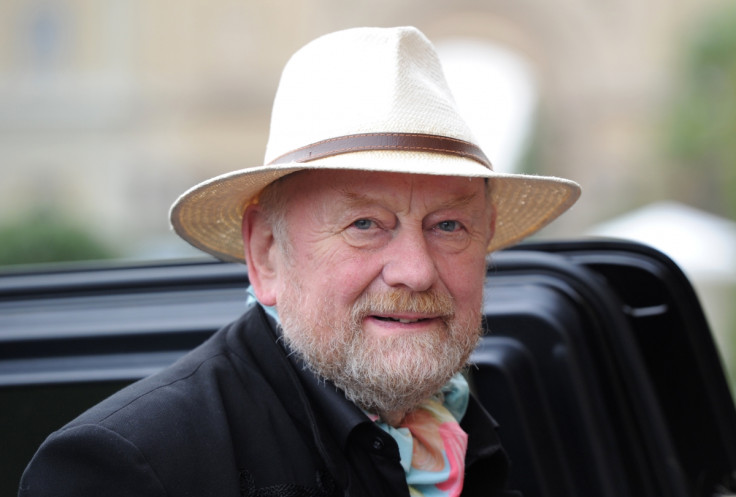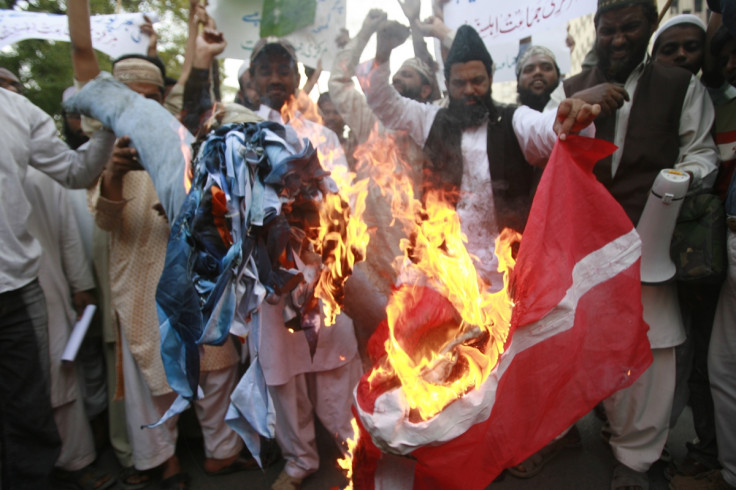Prophet Muhammad cartoon controversy: Danish cartoonist Kurt Westergaard has no regrets

A decade after a Danish newspaper sparked global outrage by publishing 12 cartoons of the Prophet Muhammad, including one of the messenger's turban as a fused bomb, the man responsible for the drawing says he feels anger but no regret. Kurt Westergaard's notorious caricature, published by the Jyllands-Posten daily newspaper on 30 September 2005 would trigger deadly protests in the Muslim world, as Danish embassies and flags were torched in the Middle East.
A decade on, and the impact of the cartoon and the wider debate over the suppression of free speech still resonates around the world following the attack on Charlie Hebdo staff in January. Westergaard, 80, who faced a number of death threats and was the victim of an attempted murder in 2011, said: "My basic feeling has been and still is anger. If you are threatened I think anger is a good feeling because it is like you mentally strike back."
"I have no problems with Muslims as a whole, I will always fight for people's right to have their religion and their beliefs. That is a private matter," he told AFP. The cartoonist also said that rather than perceiving his work as an attack on Muslims, the drawings should be viewed as condemnation of "terrorists who get their spiritual ammunition from parts of the Quran".

The cartoons were published to foster a debate on self-censorship and freedom of expression after a search to find somebody to draw a children's book about Muhammad ended fruitlessly over fears it could provoke a backlash. In Islam, graphic depictions of the prophet are considered blasphemous and Westergaard joined the likes of Salman Rushdie when a "fatwa" (death sentence) was issued against him.
In the years since the episode, thwarted terror plots against Jyllands-Posten and the Charlie Hebdo attack have fuelled a fierce debate on what is acceptable in the name of freedom of expression, as well as the impact of the incidents in European newsrooms. "At many media outlets it has created a fear of dealing with Muslim perceptions of taboos," Anders Jerichow, foreign affairs columnist at Danish daily Politiken, said. "And I think that is unfortunate both for the Muslim world and for the rest of the world."
In January, Al-Azhar in Egypt, a leading centre for Sunni Islam, denounced the provocative Charlie Hebdo cover as "repellent" and "disgusting", but issued a call to Muslims worldwide to ignore the cartoons. "People's opinions should not hurt the feelings of others – that's what Islam taught us – and we ask all Muslims to ignore this work, not give it any attention, not even talk about it, to avoid reactions, especially violent reactions, because things could get out of hand," Abbas Shoman, head of the institute's Council of Senior Scholars, said.
Ten years on from the publication of the cartoons that triggered worldwide fury, Westergaard reiterated his lack of regret over the incident and said what had happened was unavoidable. "Now it was the cartoons that started this confrontation or collision, but it might also have been a play, a book or something else," he said, adding he was "excited" to see how the inflammatory cartoons would be memorialised by the Danish media.
© Copyright IBTimes 2025. All rights reserved.






















